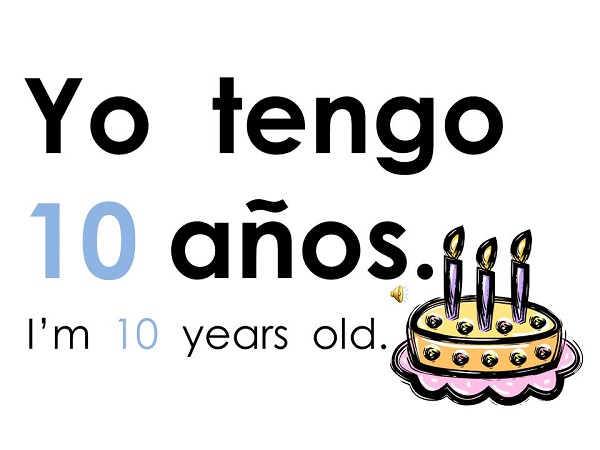Age is one of the most commonly asked questions to get to know someone. In this lesson, we will help you learn how to ask "How old are you?" and how to tell your age in Spanish.
How to say how old are you in Spanish?
There are many ways to ask someone's age. The most common way is to use the phrase Cuántos años (How many years) and a form of tener (to have). This literally translates as "How many years do/does ___ have?". However, the closest meaning of this sentence in English is "How old are you."
Note:
- Remember to choose the correct form of tener conjugation depending on the person who you're asking about.
- If you want to add the subject pronoun to the question, add it after the form of tener.
- If you want to ask the age of a different person (not the person that you're talking to), say his/her name after tener.
For examples:
¿Cuál es tu/su edad? - What’s your age?
¿Cuántos años tienes/tiene? - How old are you?
¿Qué edad tienes? - How old are you?
¿Cuántos años tiene tu hermana? - How old is your sister?
How to tell your age in Spanish?
In English, you ask "How old are you" if you want to know about somebody's age and he/she will answer by saying "I'm ___ years old." However, in Spanish, you won't use ser or estar (to be) to say your age. Instead, you should use tener (to have) and años (years).

Telling your age in Spanish
Let's take a look at some examples below:
Tengo catorce años - I am 14 years old.
Mi madre tiene cincuenta años - My mother is 50 years old.
You also need to know how to say numbers in Spanish 1 - 100 to say your age in Spanish.
In Spanish, you shouldn't omit the word años unless it has been used previously and the context makes clear what it means.
For example:
Tengo veinte años, y mi hermano tiene quince - I am 20 years old, and my brother is 15. (años has been used previously)
The equivalent of the phrase "at ___ years of age" or "at the age of ___" is "a la edad de ___ años" or "a los ___ años de edad". "De edad" are often omitted, perhaps more often than not.
For example:
At the age of 30 she was rich and famou = A los treinta años era rica y famosa = A la edad de treinta años era rica y famosa = A los treinta años de edad era rica y famosa.
Watch the video below to know how to pronounce these expressions:
If you don't know the meanings of any word, you can use our Spanish dictionary. Please follow our site for daily grammar and vocabulary lessons.
